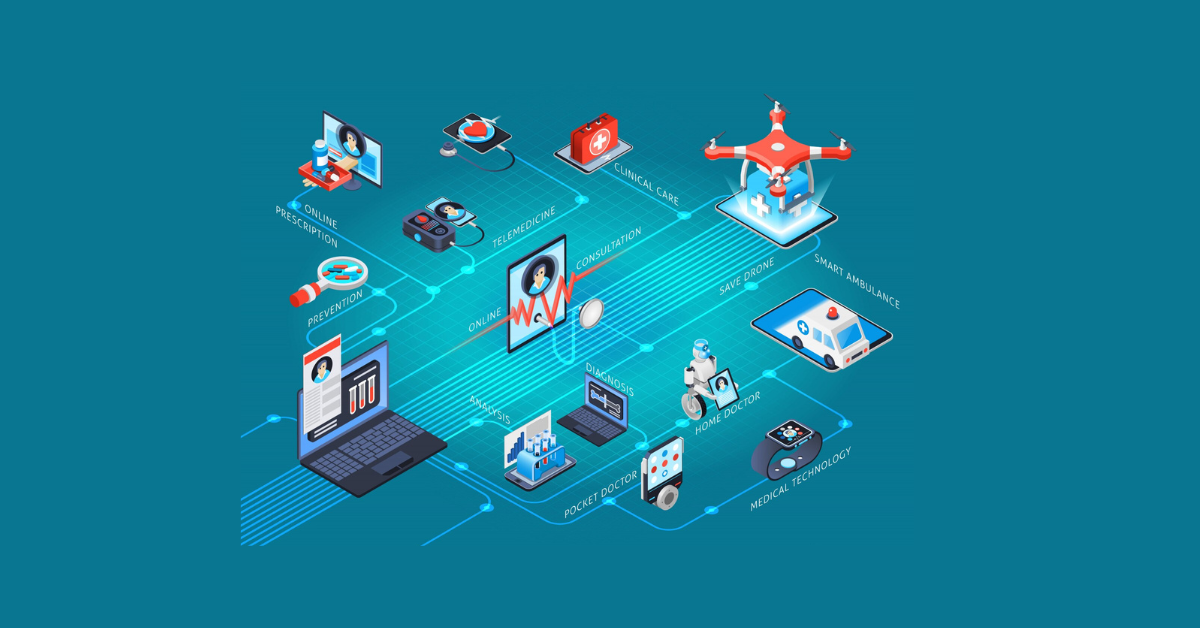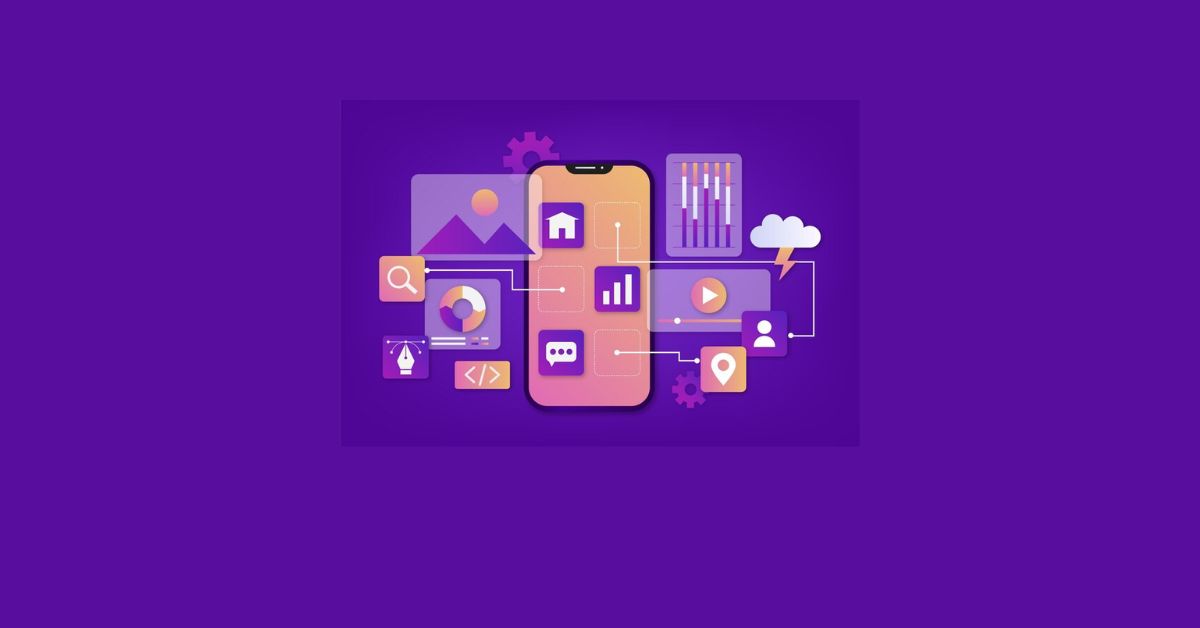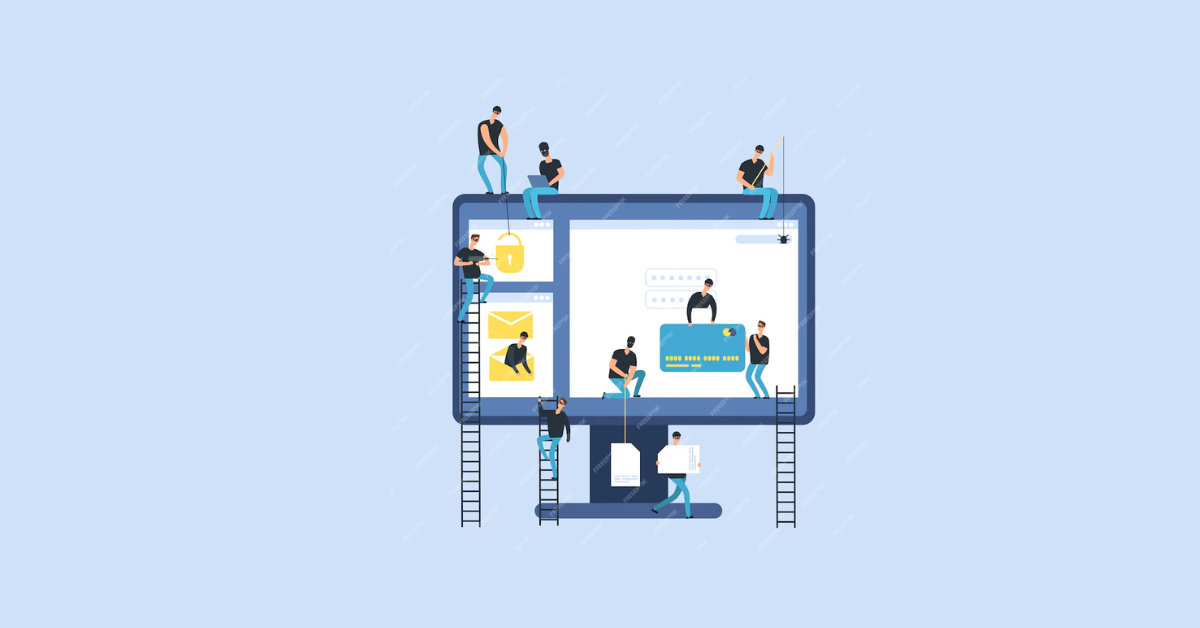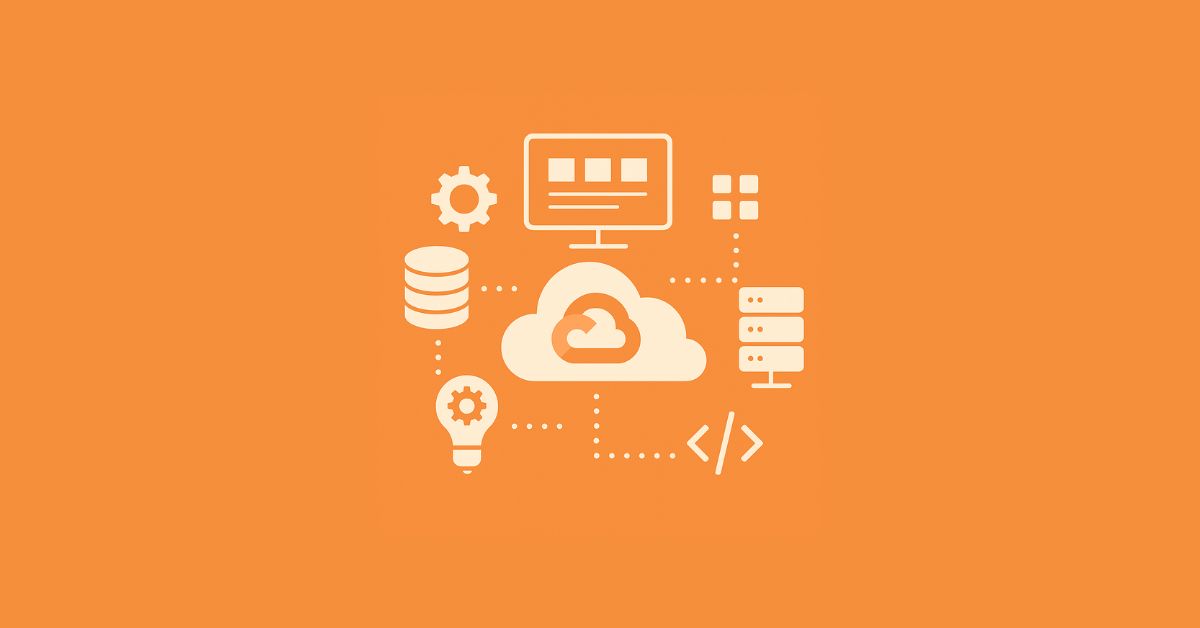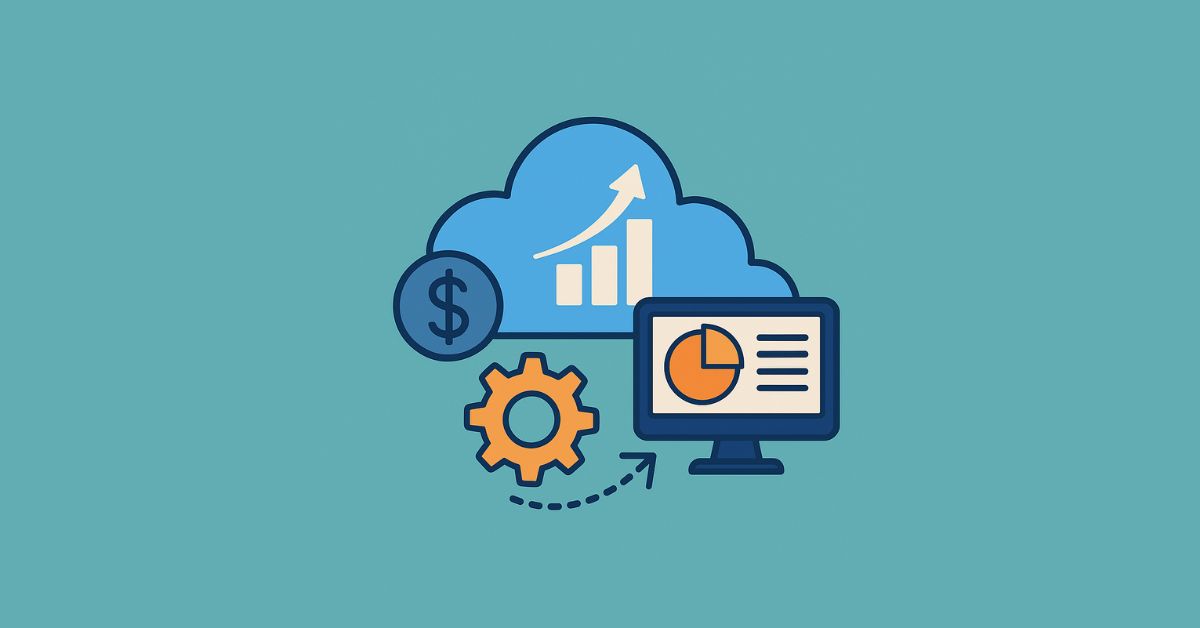Artificial intelligence, or AI, has recently become one of the most relevant creations. While many are scared of AI, it cannot be denied that AI in healthcare field has made a significant mark on the world. One of the sectors that has benefited from AI is the healthcare industry. It has experienced a paradigm shift in delivering and managing healthcare services.
- What is AI in Healthcare?
- Role of AI in Healthcare
– Data Management Revolution
– Robotic Automation for Repetitive Tasks
– Personalized Treatment Paths
– Digital Consultation Platforms
– Augmented Healthcare Professionals - Top Benefits of AI for Medical
1. Enhanced Diagnostics and Early Detection
2. Personalized Treatment Plans
3. Efficient Workflow and Administrative Processes
4. Drug Discovery and Development
5. Remote Patient Monitoring
6. Predictive Analytics for Public Health
7. Cost Savings and Resource Optimization - Conclusion
- Frequently Asked Questions (FAQs)
What is AI in Healthcare?
Artificial Intelligence (AI) is the ability of computers and machine learning to mimic human intelligence and carry out intricate automated activities. AI-enabled computers aim to mirror the capabilities of the human intellect, but they can also surpass it in many ways. One such area of ability is the efficient sorting through massive amounts of huge data to find anomalies, patterns, and trends.
Not unexpectedly, AI in medical field offers a plethora of options in the field of health care. It can be applied to improve a wide range of standard medical procedures, from disease diagnosis to helping patients with life-threatening illnesses like cancer choose the best course of treatment. Artificial intelligence in healthcare brings in (AI)-equipped robotic surgical instruments that can improve the quality of surgical procedures by reducing physical variations. AI in medical field also supplies real-time information to physicians.
Role of AI in Healthcare
- Data Management Revolution
AI in Healthcare revolutionizes data management by efficiently compiling, analyzing, and storing medical records and history. The use of AI in healthcare ensures faster and more consistent access to crucial information.
- Robotic Automation for Repetitive Tasks
AI in hospitals streamlines mundane tasks such as analyzing tests, X-rays, and CT scans, leading to faster and more accurate results. Cardiology and radiology benefit significantly from healthcare artificial intelligence allowing specialists to focus on complex cases requiring human expertise.
- Personalized Treatment Paths
Future artificial intelligence in healthcare designs customized treatment plans by analyzing patient data, research findings, and clinical expertise. This tailored approach to healthcare artificial intelligence ensures precision and effectiveness in medical interventions.
- Digital Consultation Platforms
AI in healthcare apps can offer virtual medical consultations based on individual medical histories and symptom reports. Through speech recognition and database comparison, these healthcare Artificial Intelligence platforms provide personalized recommendations, enhancing access to healthcare services.
- Augmented Healthcare Professionals
The future of artificial intelligence in healthcare empowers medical professionals by augmenting their capabilities. Future Artificial Intelligence in healthcare can assist in diagnosis, treatment planning, and decision-making. AI for medicine enables healthcare providers to deliver more precise and efficient care.
Let’s take a look and understand the benefits of AI in healthcare industry and AI for the medical industry!

Related To Read
Top Benefits of AI for Medical
1. Enhanced Diagnostics and Early Detection
Future Artificial Intelligence in healthcare can support medical professionals in finding diagnostics and detecting stories. Since vast datasets and machine learning fuel future Artificial Intelligence in healthcare algorithms, they allow professionals to improve their diagnostic accuracy. This improvement in diagnostics can even result in identifying potential issues at an early stage. The various diagnostic tests such as medical imaging, X-rays, pathology results, and the future of Artificial Intelligence in healthcare tools can easily detect different diseases.
So, multiple diseases such as cancer, cardiovascular conditions, or even neurological disorders can be discovered in the early stages. The benefit that can be envisioned from the future of artificial intelligence in healthcare is that it can analyze conditions much faster than the human mind and find details that might also be missed. Hence, the diagnostics process using AI in hospitals is meant to provide quicker diagnosis and early detection.
2. Personalized Treatment Plans
Machine learning and AI in hospitals can analyze medical data to reveal the medical insights of the patient. This data includes genetic information, medical history, lifestyle factors, etc. After conducting a thorough analysis, AI in hospitals can provide a personalized treatment plan. This unique treatment plan using AI in hospitals is tailored to meet the patient’s healthcare requirements.
So, this level of holistic treatment ensures that the treatment of a patient is optimized to the maximum. Using AI in healthcare industry and developing these personalized treatment plans can help reduce the side effects or mistakes caused by human error or lack of foresight.
3. Efficient Workflow and Administrative Processes
The most significant advantage of AI in healthcare is that it can make working in the healthcare sector much more accessible. While working in a field that deals with people’s lives is daunting, the use of AI in healthcare can improve the working processes. During COVID-19, the difficulties faced by the healthcare sector had an overall effect on the quality of healthcare provided to patients. Some of these issues arose due to inefficiency in the administrative aspects of work. With the use of AI in healthcare, administrative tasks meant to be carried out can be streamlined to ensure operational efficiency. By facilitating these tasks, the use of AI in healthcare makes it more accessible to complete, and a smoother workflow exists.
Moreover, several examples of the use of AI in healthcare assist in improving the administrative processes. A chatbot or virtual assistant can help communicate with patients and different hospital employees, reducing the time required for appointment scheduling, administrative inquiries, and billing processes. This ensures that healthcare professionals are focused on what they do best, which helps the patients get better. So, using AI in healthcare industry can also improve patient care.
4. Drug Discovery and Development
The most exciting thing about Artificial Intelligence in hospitals is its ability to assist any industry practically or in a research setting. The world we live in is entirely controlled by technology, but Artificial Intelligence in hospitals is the most unique since it can help with drug discovery and development. Artificial Intelligence in hospitals can analyze vast datasets, identify potential drug candidates, and predict their efficiency. This results in an expedited research and development phase in discovering drugs. The application of AI in healthcare can create models that can predict how chemical compounds react and act under certain circumstances.
Due to this, the time required to develop life-saving medicines can be reduced immensely. Moreover, with the application of AI in healthcare leading this developmental process, organizations can introduce new drugs to the market at reduced costs. This is because the use of AI in healthcare industry minimizes the amount of time and resources required tremendously. Hence, the application of AI in healthcare can allow organizations to develop a better healthcare system in terms of the costs of drugs and their efficiency.
5. Remote Patient Monitoring
This one sounds tricky, but it is also pretty simple. You might know about the smartwatch, which was recently introduced. Did you know it can detect your heart rate, calculate your walking steps, and perform other healthcare-related monitoring? Your smartwatch works on the principle of IoT or the Internet of Things. With the rise of these devices in healthcare, AI can help monitor patients remotely.
So, healthcare providers can track patients’ vital signs and health metrics in real-time using AI-driven hospital applications. The application of AI in hospitals can reduce the chances of errors immensely. This application ensures that any issue is detected early, which can prevent complications from occurring as well. The usage of AI in healthcare can assist in reducing the burden that is on the shoulders of healthcare providers.
6. Predictive Analytics for Public Health
Artificial intelligence in healthcare is a fantastic analytic tool. It can analyze and predict issues with immense precision and accuracy. AI-driven predictive analytics can help healthcare officials anticipate and manage outbreaks without problems.
This is because Artificial intelligence in healthcare can identify the potential hotspots and predict the kind of disease and how much it will spread. Artificial intelligence in healthcare can help intervene in public health issues by analyzing these patterns in health data.
7. Cost Savings and Resource Optimization
AI in healthcare is the newest innovation of technology, and while developing it may be expensive, it can significantly help reduce medical costs. One of the most significant long-term benefits of AI in healthcare industry is its cost savings. Moreover, it can assist healthcare professionals in allocating resources efficiently and reduce the possibilities of unnecessary procedures.
With artificial intelligence in healthcare, errors can also be minimized, leading to better patient care. Hence, using AI in healthcare can assist in making a more cost-effective and sustainable healthcare system.
Conclusion
Today, we live in the wave of AI and the power it holds to revolutionize the healthcare industries and several other industries. AI in healthcare industry can improve the medical system by improving patient care, administrative processes, and even developing drugs that heal lives. So, if the healthcare systems must progress, healthcare providers must adopt AI in healthcare.

